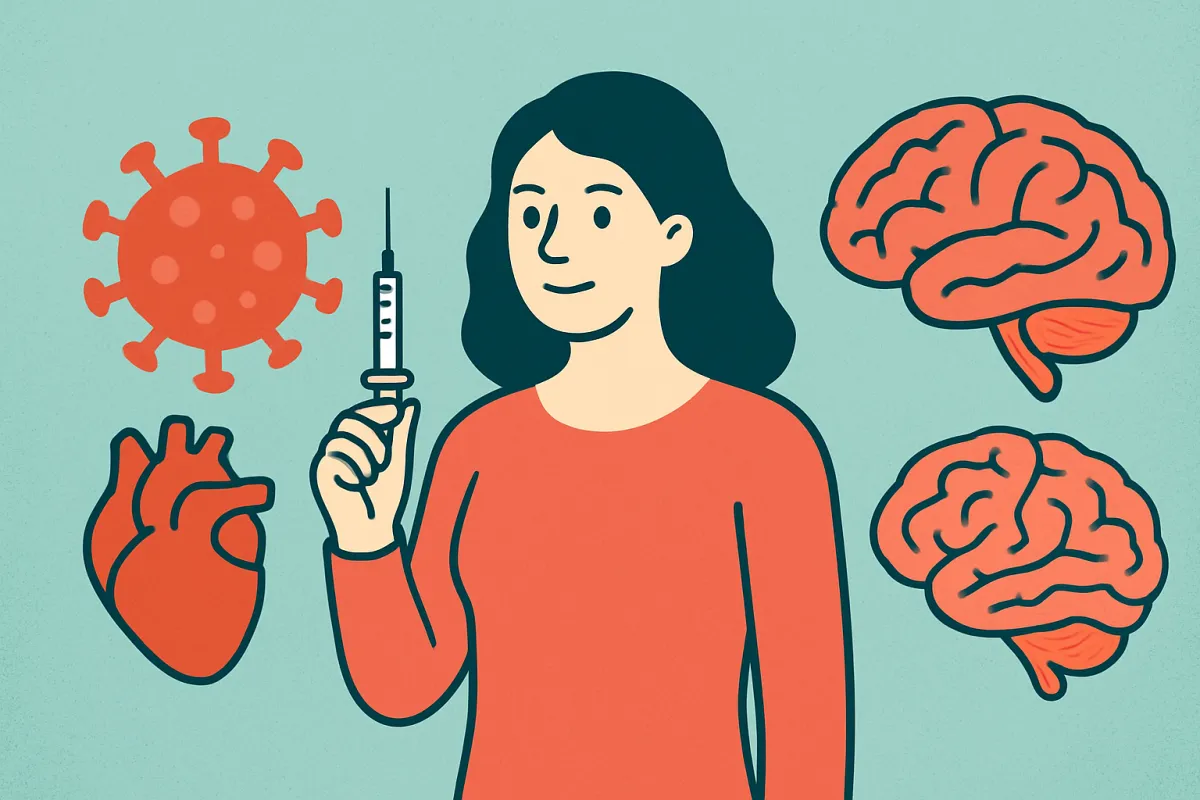
This Exciting Weapon In The War On Disease Was Right In Front Of Us!
One of our clients was recently diagnosed with shingles.
The good news is that it was relatively mild, thanks to her shingles vaccine.
Shingles is bad news...that just keeps coming.
Researchers analyzed health records from more than 174,000 adults over age 50. Compared with people who never had shingles, those who did were:
20% more likely to have a heart attack
27% more likely to have a stroke
30% more likely to die within five years
Even more concerning, they were also more likely to develop vascular dementia, memory loss caused by reduced blood flow to the brain.
Being vaccinated before developing shingles dramatically reduced those risks.
25% lower risk of heart attack or stroke
27% lower risk of blood clots
50% lower risk of vascular dementia
21% lower risk of death
The vaccine didn’t just reduce the chance of getting shingles. It seemed to protect the heart and brain from its long-term effect.
Those benefits lasted for years after vaccination.
The same virus that causes chickenpox can reactivate later in life as shingles, triggering a wave of inflammation that lingers long after the rash fades.
That inflammation may damage blood vessels, raise the risk of clots, and strain both the heart and the brain.
The shingles vaccine (Shingrix) seems tocalm that hidden inflammation, protecting the cardiovascular system for years to come.
Other vaccines are delivering unexpected benefits.
A growing number of studies suggest that routine vaccines, including flu, RSV, and Tdap (tetanus, diphtheria, pertussis), may have protective effects beyond infection prevention.
The flu shot: A study of1.8 million adultsf ound recipients of at least one flu shot were 40% less likely to develop Alzheimer’s over the next 4 years.
RSV and shingles vaccines: were associated with reduced dementia risk within just 18 months.
Shingles and Tdap vaccines: Adults who received both vaccines had an even lower dementia risk than those who got only one.
We don't know why, but two theories stand out.
1. Vaccines prevent severe infections that can accelerate brain aging and dementia.
2. The immune “training” vaccines provide may help the body control inflammation more effectively.
mRNA Vaccines and Cancer!
COVID mRNA vaccines may have opened a whole new door for cancer treatment.
Researchers found that receiving a COVID mRNA vaccine within 100 days of starting immunotherapy treatment was associated with a 40% reduction in mortality rate among patients with advanced non-small cell lung cancer and metastatic melanoma.
Lung cancer patients who got the vaccine lived nearly twice as long as unvaccinated patients. Melanoma patients had similar outcomes.
Traditional flu or pneumonia vaccines had no effect on survival.
That same mRNA technology is being tested on one of the toughest cancers of all: pancreatic cancer.
Researchers at Memorial Sloan Kettering, used an mRNA vaccine built from each patient’s tumor mutations to train their immune system to recognize and attack cancer cells.
Half of participants developed strong, lasting T-cell responses that stayed active for years.
Some still had active cancer-fighting cells more than 4 years later!
Larger trials are underway.
This could be a game-changer for treating aggressive cancers!